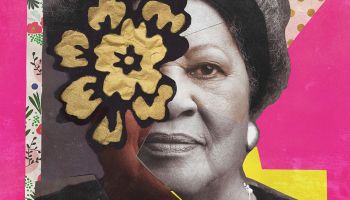Many people take their family history very seriously, especially for those of us that come from African ancestry and haven’t had much info to go on due to countless records lost during slavery days.
In a history-changing turn of events, millions of Freedmen’s Bureau records from the 19th century have recently been updated to give many Black families the answers they’ve been hoping for in the journey to discovering their lineage.
Want news at your fingertips? Text “ERICA” to 52140 to join our club. (Terms and conditions)
As reported by NBC BLK, Ancestry.com recently updated 3.5 million records of previously enslaved Black people, which is currently available for free. As a result, many people like veteran genealogist Nicka Sewell-Smith were finally able to discover long-lost information about their kinfolk from the past. In Nicka’s case, it helped fill in the gaps to 20 years of research while seeking her family origins in America.
More on how this new ancestry update makes for a godsend to Black people below, via NBC:
“It is believed to be the world’s largest digitized and searchable collection of Freedmen’s Bureau and Freedman’s Bank archives. The collection has Black genealogists and habitual researchers thrilled because the descendants of the enslaved in America can learn more about their families in a far easier way.
‘This is very exciting and will help many researchers, historians and ordinary people trying to learn more about their ancestry,’ said Angela Dodson, CEO of Editorsoncall, a company that provides editorial services for writers. Dodson has done extensive work on researching her own family tree.
‘It is often very difficult for Black Americans to trace their history because of the disruptions of slavery, being sold down river, etc.,’ she said. ‘I am often haunted by something I read in one of the narratives of the formerly enslaved who remembered Black people just wandering the roads and trails after the Civil War looking for long-lost kin. This post-war era is a crucial period for trying to make some of these connections.’
Further, the collection is significant because it is most likely the first time newly freed African Americans appear in records after the Emancipation Proclamation in 1863, as many enslaved people were previously excluded from standard census and federal documents.”
LIKE US ON FACEBOOK. FOLLOW US ON TWITTER AND INSTAGRAM.
The update in records gave many people like Nicka Sewell-Smith a chance to rediscover their roots, some for the first time in their lives. From one New York man who found out his father’s side was quasi-free Blacks and his mother’s family were enslaved during the Civil War, to a St. Louis woman who’s now writing a book about the ancestors she found recorded on a labor contract, the new Freedmen’s Bureau update has the potential to provide peace of mind for many Black Americans and others across the world.
Get a head start on discovering your genealogy over on Ancestry.com, and feel free to share with us some of the truths you come across!
LATEST POSTS:
- Join the LoveErica.com Community: Music, Ministry and Motivation
- Dr. Tim Godfrey’s “Big God” Uplifts Hearts and Moves Feet
- Creator’s Corner: Brian Courtney Wilson Unpacks What It Means To Elevate
- Use this Sneaky Hack to Consume Less Sugar
HEAD BACK TO GETUPERICA.COM
Black Families Get New Answers In Ancestry Thanks To Millions Of Updated Freedmen’s Bureau Records was originally published on blackamericaweb.com













